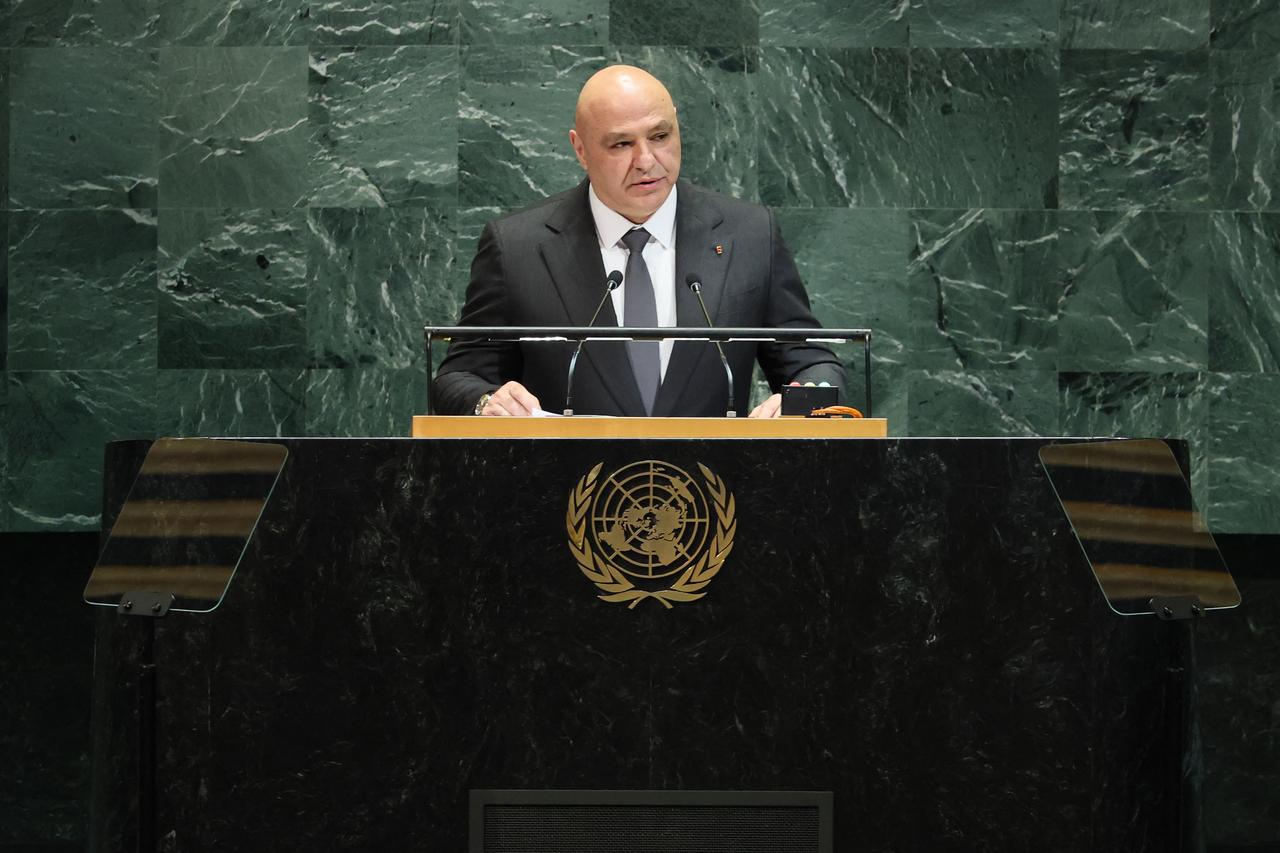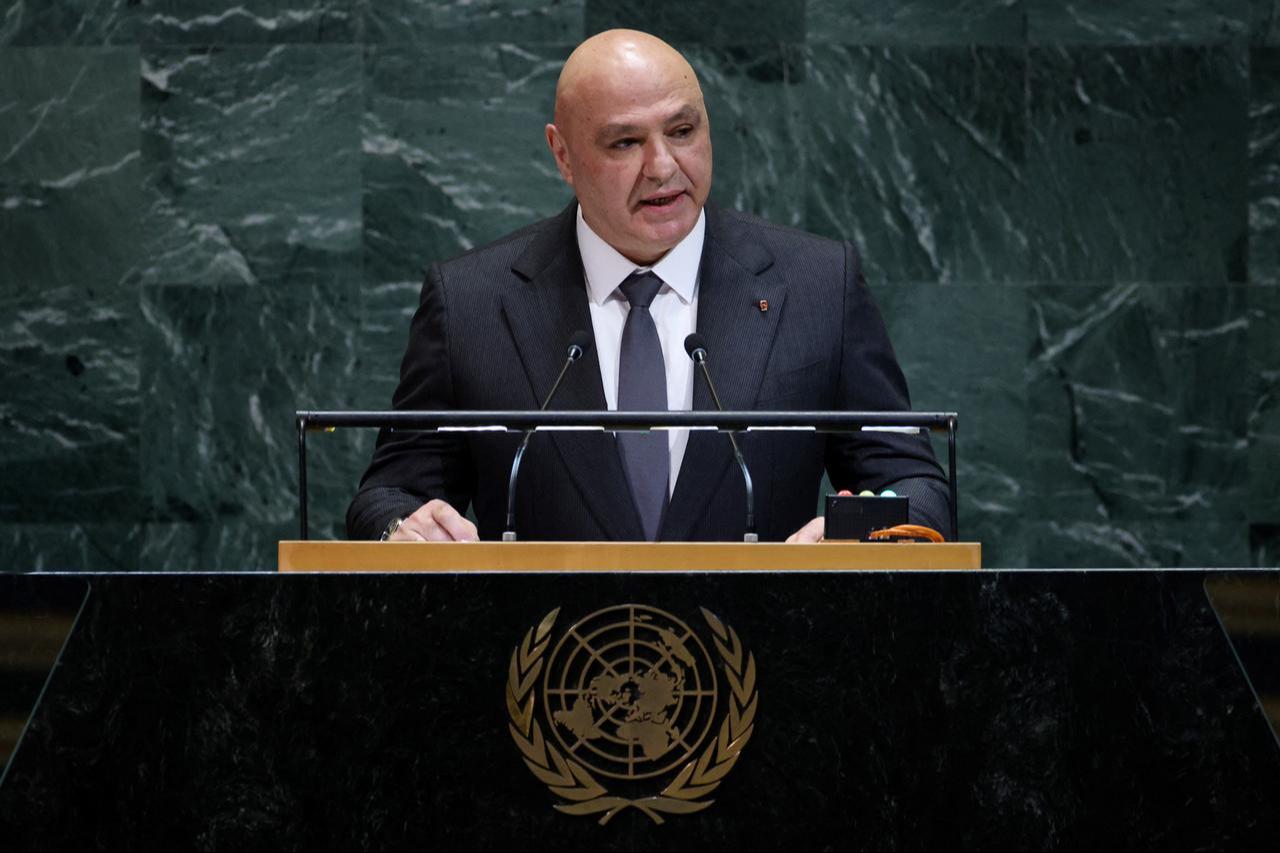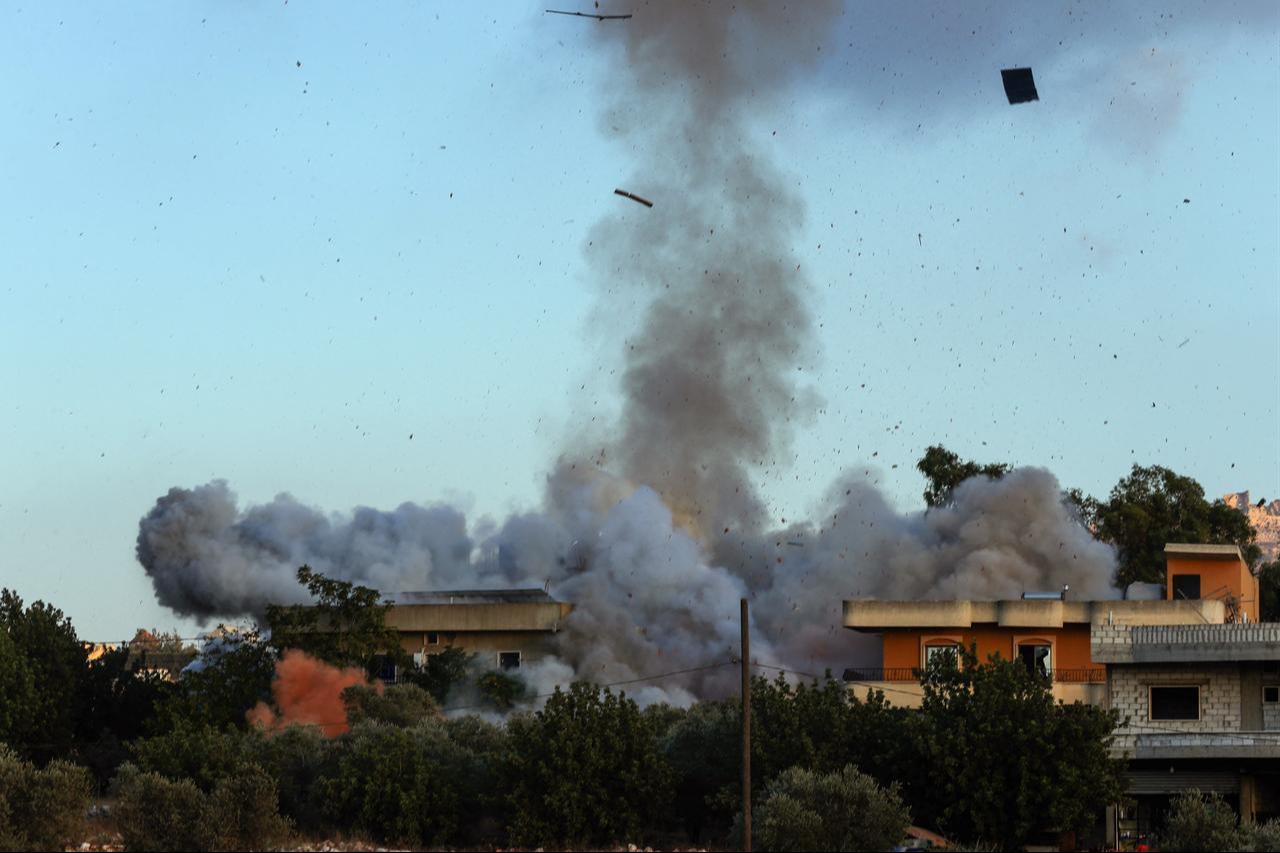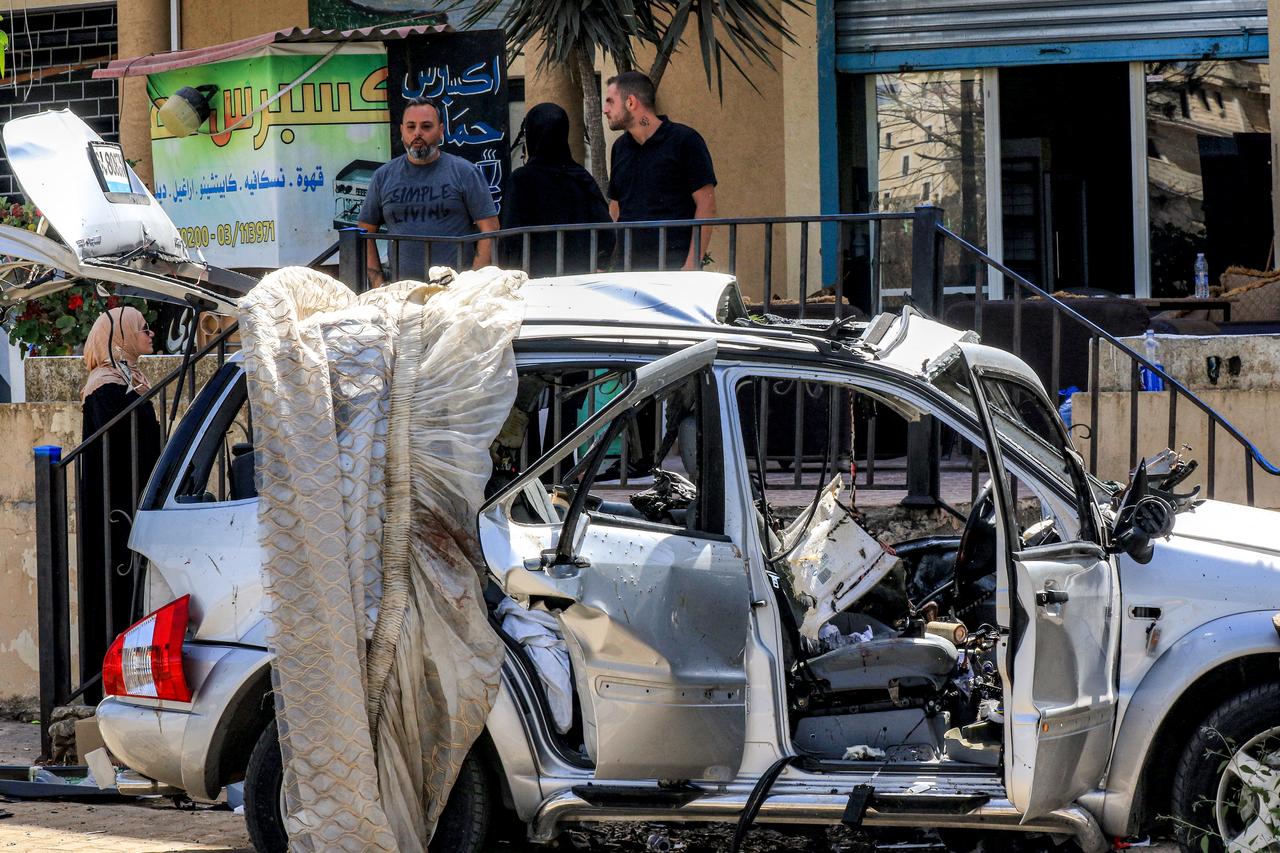
Lebanese President Joseph Aoun called on Israel to halt its attacks, withdraw from Lebanese territory and release Lebanese prisoners during his address to the 80th U.N. General Assembly.
"We demand an end to Israeli attacks, the withdrawal of occupation forces from all our territories, the release of our prisoners, and the full implementation of U.N. Security Council Resolution 1701," Aoun said. "There is no development without peace, no peace without justice, no justice without human rights, and no prosperity in the midst of conflict and war."
The Lebanese president expressed sorrow at participating in U.N. meetings discussing peace, development and human rights "while part of his people are being killed, part of the country's territory is occupied, and the homeland and its people remain suspended between life and death."

Aoun emphasized that protecting Lebanon is a global and international duty, warning that if Lebanon collapses — where Christians and Muslims live together as different but equal communities — no suitable place would remain in the world to replicate this experience.
"Lebanon is a model that has given me the opportunity to be the only Christian Arab president," Aoun stressed.
He called on the world to support Lebanon, stating: "The struggle between Lebanon being a land of life and joy, a platform for reaching their region and the world, versus becoming a deathbed, a war swamp, and a launching pad spreading to all their neighbors is still fierce."
"We have made our decision and will implement the first option. My call to you is to stand with us for peace and humanity in our region and do not abandon Lebanon," he noted.
Israel's attacks on Lebanon that began in October 2023 escalated into a full-scale war in September 2024, resulting in more than 4,000 deaths and approximately 17,000 injuries.
Despite a ceasefire agreement reached between Hezbollah and Israel in November 2024, Israel has violated the agreement more than 4,500 times.
Israel continues to occupy five hills it captured during the recent war, in addition to areas it has held for decades.

Lebanese Parliament Speaker and Shia Amal Movement leader Nabih Berri said Israel targets not a specific group, region or sect, but all of Lebanon and the Lebanese people.
"Israel's aggressive intentions are not limited to a specific group, region or sect, but target all of Lebanon and all the Lebanese people. Standing against these threats is a collective national responsibility," Berri said in a statement marking the first anniversary of Israel's war on Lebanon.
Berri criticized comments by Tom Barrack, U.S. Ambassador to Ankara and Special Representative for Syria, who suggested the Lebanese government should demonstrate clear will to disarm Hezbollah.
"The Lebanese government must immediately take an official position regarding the U.S. Representative's words about the government, army and resistance, which are unacceptable in form and content and even contradict his previous statements," Berri said.
Médecins Sans Frontières (Doctors Without Borders/MSF) reported that the humanitarian crisis in Lebanon continues despite a year passing since Israel began the war.
"With more than 82,000 people displaced, thousands of families are struggling to access healthcare and rebuild their lives under unstable conditions," said Darwin Diaz, MSF's Medical Program Coordinator for Lebanon.
"Despite the ceasefire agreement signed in November 2024, the clashes have not stopped and the humanitarian crisis continues," Diaz added.
According to World Health Organization data, during the war's peak period, eight hospitals were evacuated while 21 hospitals were damaged, closed or had their services restricted. Additionally, 133 primary healthcare facilities ceased operations, with Nabatiyeh city alone losing 40% of its hospital capacity.
MSF reported providing 175,338 medical consultations, 14,179 individual psychological support sessions, and 12,433 group psychological support sessions between Sept. 23, 2024, and Sept. 1, 2025.

The U.N. Security Council established UNIFIL on March 19, 1978, following Lebanon's request to verify Israeli withdrawal, restore peace and security, and support the Lebanese government in re-establishing authority over southern Lebanon.
Resolution 1701, unanimously adopted on Aug. 11, 2006, calls for Israel's withdrawal behind the Blue Line and the disarmament of the area between this line and Lebanon's Litani River, allowing only Lebanese army and UNIFIL weapons and military equipment in this zone.